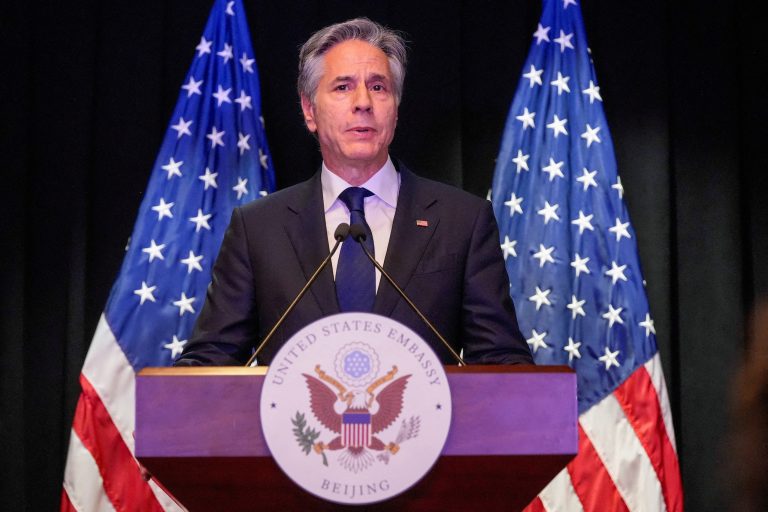China is committed to opening up its financial sector, according to a State Council executive meeting held on July 21. The meeting, attended by Chinese Premier Li Keqiang, noted that opening up the country’s financial sector in recent years has coincided with over 100 foreign-invested banks, insurance, securities, payments, and clearing institutions setting up operations in China.
“We need to continue advancing opening-up in an orderly way, and fully leverage both the domestic and international markets and resources, so that China remains a popular destination for foreign investment,” Li said at the meeting, according to a report published by the State Council.
The cabinet meeting proposed refining the market access threshold of foreign-invested financial institutions like insurance companies and banks, improving rules related to cross-border transactions between parent and subsidiary companies of financial firms, and optimizing the channels and methods used by foreign capital to take part in China’s financial market.
The meeting also decided to improve the management requirements of direct investment projects linked to the real economy. The RMB exchange rate would be kept stable at an “adaptive and balanced level.” Mechanisms that can monitor, evaluate, and issue early warnings of potential financial systemic risks would be established.
Bond market
The Chinese bond market is one of the beneficiaries of the government decision to open up to foreign money. Before 2017, foreign investors had to go through a lengthy process to be qualified to invest in Chinese bonds.
Success
You are now signed up for our newsletter
Success
Check your email to complete sign up
But in 2017, the Hong-Kong based Bond Connect allowed international investors access to the mainland market, thus putting China’s bonds on the radar of foreign capital. Wall Street keeps adding Chinese bonds to several indexes, which also makes it easy for international traders to channel money into such investments.
A strong factor that makes Chinese bonds attractive to investors when compared to U.S. bonds is the yield rate. China offers a higher bond yield when compared to the United States. At present, Chinese 10-year bond yields are hovering around 2.935 percent while the U.S. 10 year yield is around 1.242 percent.
In June 2021, over 25 percent of the $18.9 billion inflow into emerging market debt went into Chinese bonds. “China has slowly become one of our core holdings… It’s hard to say never but it’s unlikely we’ll be at zero again,” JPMorgan Asset Management’s Arjun Vij told Bloomberg. The institution’s $1.3 billion Global Bond Fund has invested roughly 9 percent in Chinese debt, up from zero exposure to yuan-denominated bonds four years back.
Controlling foreign investment
While the Chinese government is taking steps to open up its financial sector, it is also moving to gain greater control over foreign investments made in the companies, a decision that could harm international investors who bet their money on Chinese firms.
According to a July 7 report by Bloomberg, the China Securities Regulatory Commission is seeking to revise the rules on the overseas listing of Chinese companies. The new rules would mandate firms using the Variable Interest Entity (VIE) model to seek regulatory approval before going public in Hong Kong or the United States.
VIEs are used by Chinese businesses to allow foreigners to invest money via shell companies located in other countries like the Cayman Islands. As such, the investors do not actually hold a stake in the Chinese company located in the mainland. Instead, they hold a stake in a foreign company that receives fees and royalties from the China-based company based on the contracts between the two firms. VIE exists because Chinese law prohibits foreign ownership of Chinese tech companies.
An example of such an investment is Alibaba’s IPO at the NYSE in 2014. Investors didn’t actually buy shares from the company located in China. Instead, they acquired shares of Alibaba Group Holding Limited, incorporated in the Cayman Islands, that allows them to benefit from the activities of China-based Alibaba.
The U.S. Securities and Exchange Commission (SEC) has warned that VIEs pose a threat to American investors. If the local management were to decide to split from the holding company, the American investors would be left in the dust as they have no claim over the original company operating in China.
“The Chinese government could determine that the agreements establishing the VIE structure do not comply with Chinese law and regulations, including those related to restrictions on foreign ownership, which could subject a China-based Issuer to penalties, revocation of business and operating licenses, or forfeiture of ownership interests,” an SEC report from November 2020 states.
China expert Gordon Chang warns American investors about the dangers of VIE. He notes that people tend to believe that Beijing would not declare VIE as illegal as it would expropriate foreign ownership of Chinese companies, thereby risking pushing away foreign money flowing into the country.
However, “China’s brand of communism, many forget, is inherently hostile to the private sector in general and foreigners in particular,” he warns. If Chinese President Xi Jinping believes that there is too much foreign influence in Chinese society, Chang believes that he will decide to limit offshore ownership in the country’s businesses.
“As a part of this effort, he will, I think, step up a long-running campaign to harass foreign businesses and begin to force offshore investors out of his country. The questionable VIE structure gives Xi the perfect excuse to now expropriate foreign ownership of successful Chinese tech companies,” according to Chang.














